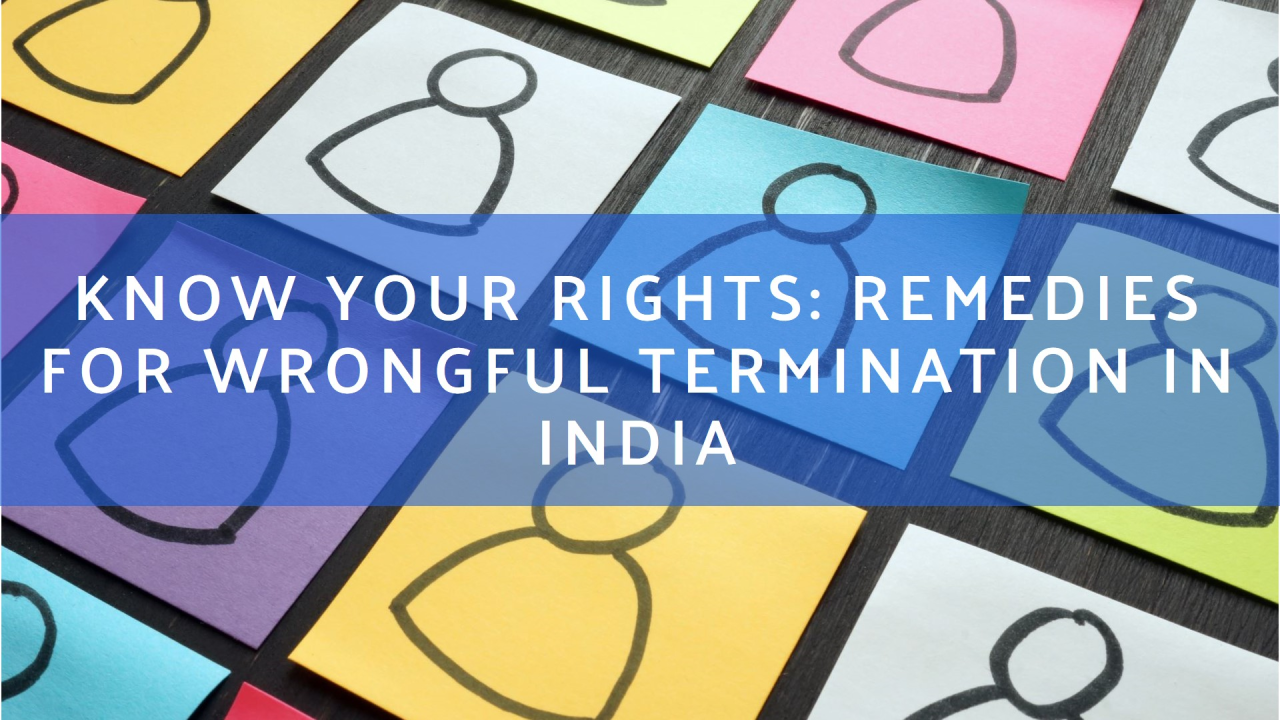In the professional world, job security is a significant concern for many employees. However, there are instances where an employee might face wrongful termination. This article aims to shed light on what wrongful termination entails, the relevant laws in India, and the remedies available to employees who find themselves in such situations.
## What is Wrongful Termination?
Wrongful termination, also known as wrongful dismissal or wrongful discharge, occurs when an employer terminates an employee’s contract of employment in violation of one or more terms of the contract or a statute in employment law.
## Causes of Wrongful Termination
Wrongful termination can occur due to various reasons, including but not limited to:
1. Discrimination: This involves termination based on race, religion, sex, age, or disability.
2. Retaliation: An employee might be wrongfully terminated for filing a complaint or reporting a violation.
3. Refusal to commit an illegal act: If an employee is fired for refusing to engage in illegal activities, it constitutes wrongful termination[^1^].
## Laws Governing Wrongful Termination in India
There are several labour and employment laws prevalent in India against wrongful termination of employment. If the wrongful termination is done on the basis of discrimination it is also a violation of fundamental rights of a person enshrined under the Indian Constitution.
If the wrongful termination of employment is done in violation of any provisions of labour laws, the various labour laws such as the Industrial Disputes Act, 1947, the Workmen’s Compensation Act, 1923, State Shops and Establishments Acts etc shall apply. All major labour laws in India deal with wrongful termination of employment.
## Relevant Case Laws
1. Smt. Saroj Agarwal vs Union Of India And Others: In this case, the court held that in cases of wrongful termination of service, reinstatement with continuity of service and back wages is the normal rule.
2. Ram Manohar Lohia Joint Hospital and Others vs Munna Prasad Saini and Another: This case dealt with the issue of whether the first respondent workman was an employee of the second respondent, namely, Bombay Intelligence Security (I) Ltd. or an employee of the appellant Hospital..
3. S.S. Shetty v Bharat Nidhi Ltd: The Supreme Court held that the employment expressly contemplates the termination by a prior notice of 1 month, the damages awarded shall be ordinarily up to 1 month’s salary.
## Remedies Available to Employees
Employees who have been wrongfully terminated have several remedies available to them:
1. Reinstatement: This is one of the most common remedies where the employee is given back their job.
2. Back Pay: The employee receives the pay they would have earned from the time of termination to the time of a judgment or settlement.
3. Front Pay: The courts may award front pay if the employee cannot be reinstated. This covers future lost wages.
4. Compensatory Damages: These damages cover out-of-pocket expenses caused by the wrongful termination, such as costs of a job search.
## Conclusion
Wrongful termination can have severe implications on an employee’s career and personal life. However, knowing your rights, the relevant laws, and the remedies available can provide some relief. If you believe you have been wrongfully terminated, it is advisable to consult with an employment attorney to explore your legal options.
Advocate Vivekanand is an specialist of Employement/ Labour Laws in India.
Contact- 09958173388, 09873246043, advocatevivekdelhi@gmail.com


